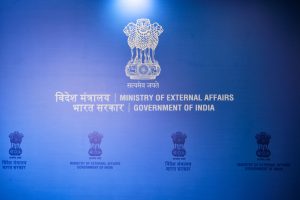India’s government will not invite Myanmar’s military junta to an upcoming meeting of foreign ministers of the Association of Southeast Asian Nations (ASEAN), Indian media reported this week.
According to a report by The Hindu, the government is “likely to not include” Wunna Maung Lwin, the junta’s appointed foreign minister, from its list of invitees to the India-ASEAN Foreign Ministers’ Meeting in mid-June.
Instead, the Indian Ministry of External Affairs has sent an invitation to Chan Aye, the permanent secretary of the junta’s foreign ministry, for both the June 16-17 foreign ministers’ summit and a Senior Officials Meeting that will be held on June 15.
The move appears to mark a hardening of India’s position, after Wunna Maung Lwin was invited and attended the regional BIMSTEC summit, which was held by videolink in late March and Foreign Secretary Harsh Vardhan Shringla paid a two-day visit to the country in December.
What explains India’s decision? The most logical explanation is that New Delhi is simply following the lead of ASEAN, which has decided to invite only a “non-political” and “non-military” representative from Myanmar to high-level meetings of the bloc – and indeed, The Hindu, cited several official and diplomatic sources to this effect.
ASEAN first decided to exclude the military junta from last October’s ASEAN Summit, in response to its lack of action to implement the bloc’s Five-Point Consensus peace plan, which includes a cessation of violence and calls for peaceful dialogue involving “all parties.” This has largely carried over into subsequent high-level meetings, including an informal meeting of ASEAN foreign ministers in February and last month’s U.S.-ASEAN Special Summit in Washington, although current chair Cambodia has drawn criticism for inviting junta appointees to lower-level ASEAN meetings.
In its report of the news, The Chindwin also argued that the shift was a result of “direct pressure from its Quad allies” – Australia, Japan, and the United States – at last week’s Leaders’ Summit in Japan.
Angshuman Choudhury, a senior research associate at India’s Centre for Policy Research and sometime contributor The Diplomat, wrote on Twitter that the shift was a “positive development” for India’s approach to the military junta that seized power in February 2021. “The significance of #India excluding the #Myanmar junta from a high-level diplomatic event shouldn’t be underestimated,” he wrote. “New Delhi has so far been hesitant to take such isolationist action.”
All the same, there are probably limits to how far India will go in shifting against the junta. As for all of Myanmar’s neighbors, the coup has put New Delhi in an awkward position. The Indian military has long viewed the Myanmar armed forces as a key partner in containing the insurgent groups active in its isolated eastern hill states, which in many cases are active on both sides of the porous border. India and the Myanmar military also share misgivings about China’s growing influence in the region, which explains why, like Japan, India has adopted a relatively accommodating position towards the coup government.
It is also undoubtedly clear that ASEAN’s consensus on the exclusion of the junta from high-level meetings gives New Delhi the backing to take a more robust line against the military junta. As with most other nations, however, India’s position will most likely be dictated by the changing political conditions inside the country.

































